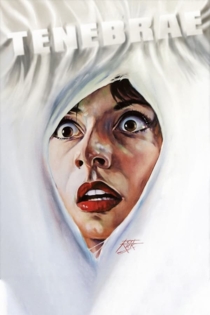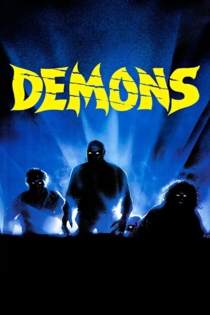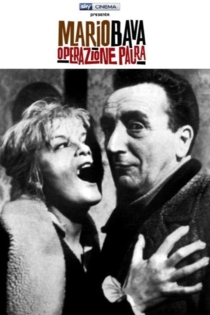
Lamberto Bava
1944 (81 год)Both Lamberto and Mario directed the made-for-TV drama "I giochi del diavolo: La Venere d'Ille" (1979). Both worked on the Dario Argento horror flick "Inferno" (1980), for which Mario designed some of the color set pieces, including the underwater ballroom, and created all the visual special effects, while Lamberto worked as Argento's assistant director. Late in 1979 Lamberto made his solo directorial debut with "Macabre" (1980), a tense drama-horror flick loosely based on a 1977 incident in New Orleans about a woman who keeps her lover's severed head in her freezer. According to Lamberto, the project started by chance when producer Pupi Avati approached him to direct as well as write the screenplay, which took just six weeks to write and direct. "Macabre" was released in Italy in February 1980 to mixed reviews, but won him recognition by his father Mario. Just two months later Mario Bava died, and an era in Italian film making came to a close.
"Macabre" was not a box-office hit and, as a result, Lamberto went back to assistant directing. He worked with Dario Argento again in 1982 with "Tenebrae" (1982). In 1983 Lamberto was offered the opportunity to direct another film, titled "A Blade in the Dark" (1983), which was a violent mystery thriller shot in only three weeks on a tight budget and filmed almost entirely in a producer friend's house. Next he directed the action-flick "Blastfighter" (1984), which was filmed in the state of Georgia, and immediately afterwards directed the "Jaws" (1975)-like thriller "Devil Fish" (1984), which was shot in Florida. On both films Lamberto was purely a director for hire and had nothing to do with the script or production end. He used the pseudonym of 'John Old Jr.' for this latter film, which was a tribute to his father Mario, who often used the pseudonym 'John M. Old'. He enjoyed his best commercial success to date with "Demons" (1985), produced by Dario Argento, co-written by Dardano Sacchetti and filmed in West Berlin. This film's international success allowed him to co-write, produce and direct a sequel, "Demons 2" (1986). Lamberto returned to giallo thrillers with "Delirium" (1987).
In the late 1980s the Italian cinema turned moribund. Lamberto, like most of his colleagues, turned to making films for Italian television. He also directed a remake of his father's "Black Sunday" (1960), which was titled "La maschera del demonio" (1990).
Nowadays Lamberto Bava continues to divide his time between TV work and a few movies, acknowledging his inspiration from his late father, Mario.
Caraibi
Lamberto Bava
Mario Adorf, Jennifer Nitsch
Two brothers fell in love with the same woman, who was nearly killed by one of them in an accident. After the two men parted in anger, they meet years later when one is a famous pirate and the other one is a soldier who needs to hunt him down...
Pirates: Blood Brothers
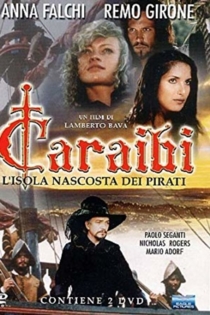
Paura: Lucio Fulci Remembered - Volume 1
Mike Baronas
Claudio Aliotti, Adelaide Aste
This documentary examines the life and legacy of controversial Italian filmmaker Lucio Fulci through interviews with his colleagues, each of whom answers the question, "What is your fondest memory of Lucio Fulci?". The responses are as varied as the people who knew the late writer-director, providing a nuanced look at the man behind such gory grindhouse classics as City of the Living Dead and The House by the Cemetery.
Paura: Lucio Fulci Remembered - Volume 1
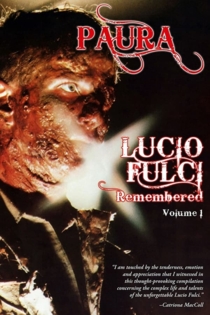
Fantaghirò
Lamberto Bava
Alessandra Martines, Mario Adorf
In the middle of a war between two kingdoms queen died tragically while giving birth to her third daughter. The king wanted a male heir to his throne and torn by the death of his wife, decides to sacrifice the girl and leads to the Cave of the Golden Rose to give her to the monster. The child is saved by the White Witch who promises her a wonderful future. With a rebellious temperament, the princess, named by his father Fantaghiro behaves like a tomboy. But one day she must confront the enemy, the king Romualdo, which is in love with her.
The Cave of the Golden Rose
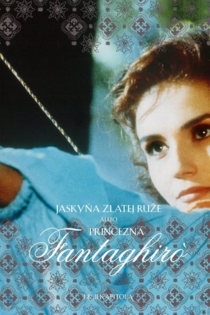
Fantaghirò 3
Lamberto Bava
Alessandra Martines, Ursula Andress
The powerful evil wizard Tarabas gets knowledge about a prophecy that a king's child will defeat him. So he sends out his army of dead soldiers to kidnap all royal children. When the soldiers attack Fantaghiro's castle to steal the babies of her sisters, the battle seems to be lost until she discovers the secret to defeat the solders but by doing that she loses Romualdo. Now Fantaghiro must find the evil wizard Tarabas and convince him to break the spell and bring back Romualdo.
The Cave of the Golden Rose 3
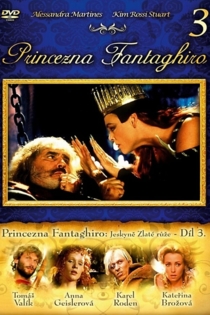
Fantaghirò 2
Lamberto Bava
Alessandra Martines, Kim Rossi Stuart
Fantaghiro and Romualdo are preparing their marriage when the Black Queen disgusted by their deep love captures Fantaghiro's father. Romualdo and his soldiers go on their journey to free him. But the insidious Black Queen transforms herself into Fantaghiro, makes Romualdo her slave by kissing him and captures the rest of his army. Fantaghiro follows Romualdo although she promised him to stay home, finds the camp deserted and enters the near castle of the Black Queen. When she asks for a duel to free her people she is very surprised to face Romualdo who has forgot her completely due to the magic of the Black Queen.
The Cave of the Golden Rose 2
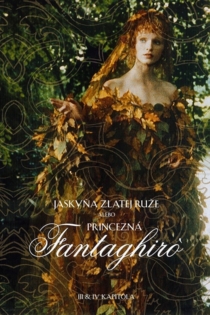
Mario Bava: Maestro of the Macabre
Garry S. Grant
Mario Bava, Joe Dante
Director Garry S. Grant’s insightful documentary celebrates the work and legacy of auteur filmmaker Mario Bava, the grand master of Italian horror and the man known by many as “the Italian Hitchcock.”
Mario Bava: Maestro of the Macabre
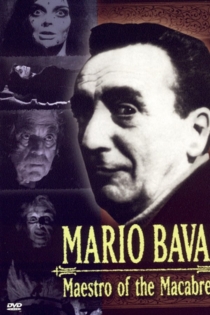
Desideria e l'anello del drago
Lamberto Bava
Franco Nero, Anna Falchi
The Dragon Ring is an italian film of two parts. It's about Desideria, the dragon king's daughter and Selvaggia, her adopted and magical sister. To get the dragon ring after the death of her father, Desideria needs to marry, but she can't find a husband, so Selvaggia sees her chance to get the ring with all its powers.
The Dragon Ring
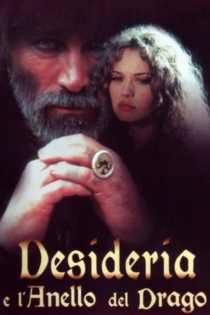
Inferno Rosso. Joe D'Amato sulla via dell'eccesso
Massimiliano Zanin, Manlio Gomarasca
Joe D'Amato, Aristide Massaccesi
Who was Joe D’amato- Aristide Massaccesi under his civil status? A genius of horror in the USA, a master of eroticism in France, the king of porn in Italy. A man with a thousand pseudonyms capable of making over 200 films while simultaneously holding the roles of producer, director, author, director of photography and even camera operator. An artisan of cinema as he liked to call himself, capable of working on all film genres. From spaghetti western to post-atomic, decamerotic to glossy eroticism, and blockbuster porn to bloody horror. Guided by the aesthetics of extremes and supported by an undeniable technical ability, Joe D’Amato pushed himself, and the viewer, beyond all limits following with dedication three rigid principles that have become his stylistic code: Amaze, Shock, Scandalize.
Inferno Rosso: Joe D'Amato on the Road of Excess
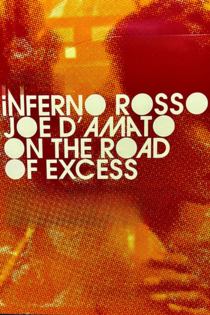
All the Colors of Giallo
Federico Caddeo
Lamberto Bava, Barbara Bouchet
'Giallo' is Italian for 'yellow', the color of the lurid pulp novels that inspired one of the most intense, extreme and influential genres in movie history. In this unprecedented collection, experience the full chronological evolution of giallo with more than 100 rare and classic trailers from such masters as Mario Bava, Dario Argento, Lucio Fulci, Sergio Martino, Antonio Margheriti, Umberto Lenzi and many more. Then slip on black leather gloves and set the mood with a Bonus CD of legendary soundtrack music from composers that include Ennio Morricone, Riz Ortolani, Bruno Nicolai, Stelvio Cipriani and others, along with all-new featurettes that thrust even deeper into the genre. "But be warned," says Gizmodo.com, "Once you start going down the blood- slicked giallo rabbit hole, you may become dangerously obsessed."
All the Colors of Giallo
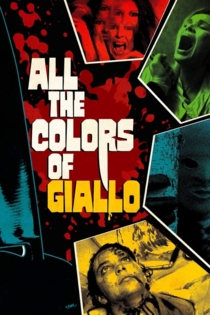
Fantaghirò 4
Lamberto Bava
Alessandra Martines, Nicholas Rogers
A black cloud travels across country, kills animals and plants and dries up the rivers. When the cloud reaches Fantaghiro's kingdom she meets Prince Parsel who follows the cloud to get his stolen castle back. After her castle vanishes, too, Fantaghiro joins Parsel on his journey to find her home, her people, her family and her love.
The Cave of the Golden Rose 4
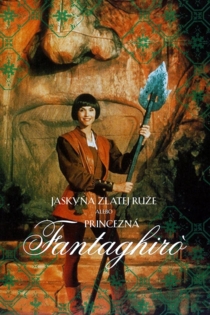
Bava Puzzle
Daniele Ceccarini, Paola Settimini
Lamberto Bava, Pupi Avati
Through the anecdotes and stories of actors, directors, critics and experts, this documentary traces the career of Lamberto Bava, from his first steps in cinema with his father Mario to his 1980 debut with "Macabro" to his collaborations with Dario Argento to the big TV series successes of "Fantaghirò," "Desideria" and "Sorellina."
Bava Puzzle
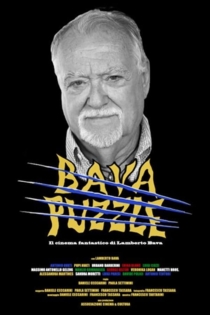
La Venere d'Ille
Lamberto Bava, Mario Bava
Daria Nicolodi, Marc Porel
Set in the 1800s, LA VENERE D'ILLE opens with the discovery of a large bronze statue of Venus on the estate of wealthy landowner Mr. De Perolade. Taking its discovery as a sign of good fortune for the impending marriage of his son Alfonzo, De Perolade orders it to be uncovered and displayed in the garden for all to see. In the process of doing this, one of the workers is badly injured when the statue falls over and crushes his leg. From the start, many of the townspeople believe the statue to be cursed, but De Perolade is proud of his discovery and sends for Matthew, an authority on antiques. Matthew is also impressed with the statue, which seems to exert a strange fascination over him, but before he can search the area for other artifacts, De Perolade implores him to stay at the house as his guest until the wedding is out of the way. He agrees to this and spends much of his time in the garden trying to capture the statue's eerie beauty in a series of drawings.
La Venere d'Ille

Sorellina e il principe del sogno
Lamberto Bava
Nicole Grimaudo, Veronica Logan
Alisea and her brothers have been captured by Azaret, an evil wizard. Alisea escapes the castle and meets the young Prince Demian, with whom she falls in love. The spirit of the source promises that they will always be together if they are to drink from its source. Alisea is again caught by the magician, and Demian has to return to his father's cone, which aims to turn him into a warrior. Seven years later, Demian becomes a warrior, but has not forgotten Alisea, who he sees in his dreams. Azaret tries to prevent Demian and Alisea from begin together.
Alisea and the Dream Prince

